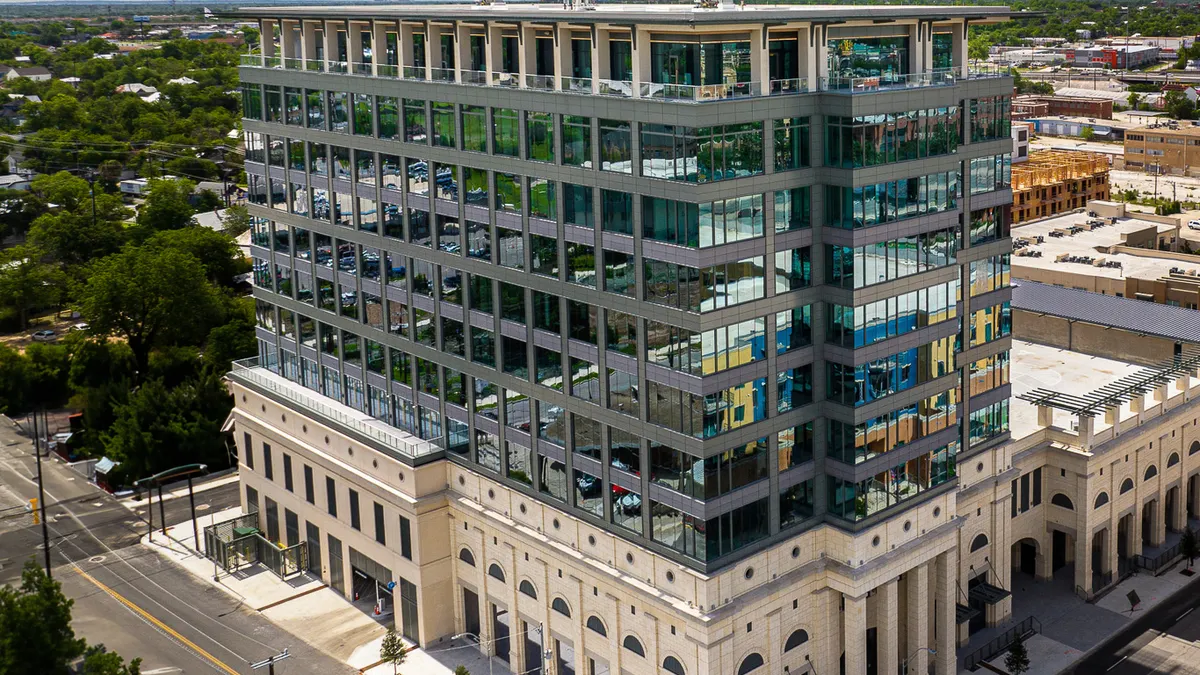Dive Brief:
- Brex, a San Francisco-based fintech best known for offering banking services to startup businesses, applied last week with the Federal Deposit Insurance Corp. (FDIC) for an industrial loan company (ILC) charter, the company said Friday.
- Since its founding in 2017, it has relied on partnerships with banks such as Radius Bank and UMB Financial to offer small and medium-sized businesses (SMBs) its suite of products.
- A growing number of nonbanks, including General Motors Financial Company, investment company Edward Jones and Japanese e-commerce giant Rakuten, have applied for ILC charters over the past year. But the trend has sparked blowback from trade groups and lawmakers who say the charter allows companies to provide banking services while sidestepping Federal Reserve oversight.
Dive Insight:
"Most small, medium-sized businesses, they have to go to multiple places to basically run their finance operations, and they can use anywhere from 10 to 15 different software tools to do that," Bruce Wallace, who would become CEO of the proposed Brex Bank, told American Banker.
A banking license would make it much easier to provide financing solutions to Brex's clients, said Wallace, who previously served as chief operations officer, chief digital officer and head of global services at Silicon Valley Bank. Jean Perschon, the former CFO of UBS's U.S. banking arm, will serve as CFO of Brex Bank.
"Brex and Brex Bank will work in tandem to help SMBs grow to realize their full potential," Wallace said in a press release. "We thank the FDIC and [Utah Department of Financial Institutions] for their efforts and guidance in this process and look forward to the next steps."
The FDIC in December issued a final rule requiring ILC parent companies to enter into a written agreement with the agency on capital and liquidity levels, and pledge to maintain "the industrial bank's capital and liquidity at levels that the FDIC deems necessary for the safe and sound operation of the industrial bank."
The FDIC has received more than a dozen deposit insurance applications from proposed ILCs since 2012. Payments company Square and student loan servicer Nelnet were approved last March for ILC charters, the first such approvals in more than a decade.
The approvals prompted Sen. Sherrod Brown, D-OH, of the Senate Banking Committee, to accuse FDIC Chair Jelena McWilliams of shuffling corporate favors "through the side door" amid the pandemic.
"Just before the last crisis, regulators gutted financial rules and even considered letting megacorporations like Walmart own banks — and here we go again," he said in a statement.
Sen. John Kennedy, R-LA, introduced a bill in 2019 aimed at closing a "loophole" that exempts ILCs from the definition of a "bank" under the Bank Holding Company Act.
"The Rakutens and the Googles of the world shouldn't be able to circumvent the Fed," Kennedy said at the time. "If they're allowed to handle your banking services, they're going to turn into continents."
The ILC application process can sometimes turn lengthy. Rakuten has twice withdrawn and resubmitted its paperwork to the FDIC, filing its third application last month.
Independent Community Bankers of America (ICBA) President and CEO Rebeca Romero Rainey blasted the FDIC's December rule, calling ILCs "the fashionable charter of choice for companies seeking to benefit from the federal safety net while avoiding oversight."
"Commercial firms should not be permitted to own a bank or ILC even if it is subject to enhanced supervision and regulation, which violates the longstanding separation of banking and commerce and leaves dangerous gaps in oversight," she said in a statement.
Brex began as a corporate card lender. The company in 2019 launched a business cash management product, Brex Cash, allows businesses to pay invoices and bill their customers in one system, and earn rewards points and 1.6% interest.













